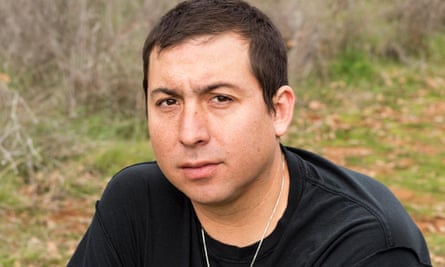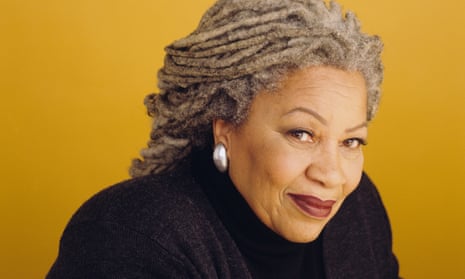When I was a child, my father told me stories about his childhood in Ghana’s Ashanti region. And, because he knew that I wouldn’t learn much about Africa in my primary schools in Europe, he was determined to instruct me about Ghanaian culture, customs and history. Our history, he emphasised, did not begin with colonisation.
My mother left when I was two, but my father wanted me to feel connected to her Armenian culture. Vividly, I remember a conversation in which he spoke to the trauma her grandparents experienced, fleeing genocide in what was then the Ottoman empire.
I have long believed that we carry history in our bodies. Yet, because I was raised outside my parents’ cultures – my father worked for the United Nations so my childhood was nomadic – I have often felt deracinated. My debut memoir, Aftershocks: Dispatches from the Frontlines of Identity, began as a private project, an attempt to understand the places my family came from. As I wrote, I also read books about people either searching for or freeing themselves from their roots. I was particularly drawn to stories that complicate too-simple notions of identity, belonging and home.
1 Go Tell It on the Mountain by James Baldwin
John Grimes, the teenage protagonist in Baldwin’s poignant first novel, is the stepson of a tyrannical Black Pentecostal preacher in Harlem during the Great Depression. John’s parents fled racist violence in the US south, but Harlem does not offer an escape from injustice, or from the trauma they carry. While John dreams of possibilities far from his stepfather’s storefront church, he knows that, being Black, he will never truly belong to the city he calls home, nor will its wealth ever belong to him. In the end, perhaps realising that he has nowhere to run, he thrashes on the floor of his stepfather’s church, caught somewhere between submission and salvation.
2 Call Me Zebra by Azareen Van der Vliet Oloomi
Funny and astute, this novel follows a woman named Zebra, who descends from a line of autodidact philosophers. Her family fled Iran during the war with Iraq. Her mother was killed by a collapsing building. She and her father journeyed through Kurdistan, Turkey and Spain, eventually settling in exile in New York. “Trust nobody,” her father warns, “and love nothing except literature.”
After her father dies, she sets out to reverse her many exiles, to locate herself in history, and to seek vengeance. Literature, she insists, is the only map and companion she needs. But, when she falls for a man, she is forced to look up from her books and confront the present.

3 Nine Continents by Xiaolu Guo
In lyrical, visceral prose, this memoir charts the author’s course from the shack in a Chinese fishing village where she was raised in poverty by her grandparents, to London where she won a prestigious scholarship to study film. Guo went on to become an acclaimed and restless film-maker and novelist, travelling the world. But, upon the birth of her daughter, she decided it was time to reckon with her past. The result is a coming-of-age story of a woman, and of the everchanging homeland she left behind.
4 Speak, Memory by Vladimir Nabokov
Nabokov’s elegant autobiography spans his happy aristocratic childhood in Russia, the Bolshevik revolution from which his family fled, and exile in western Europe and the US. “I confess,” he wrote, “that I do not believe in time.” By rejecting time, he was able to remain rooted in the past, and in the Russia he would always long for, which no longer existed except in his memories.
5 The Yellow House by Sarah M Broom
Broom’s debut is a rich family history that is also a study of her home town, New Orleans. “Much of what is great and praised about the city,” Broom writes, “comes at the expense of its native black people, who are … sometimes suffocated by the mythology that hides the city’s dysfunction and hopelessness.” At the heart of this book is the only kind of ancestral home Broom’s family can afford: a decaying yellow house in a long-neglected neighbourhood. While her mother fights to save the house, Broom attempts to escape it. But, when it is destroyed by Hurricane Katrina, Broom realises that the story of that house just might be her most precious possession.
6 Song of Solomon by Toni Morrison
I frequently reread this masterly saga of four generations of an African American family. By the time of his birth, Macon “Milkman” Dead’s family is the wealthiest Black family in their Michigan town. But he feels disconnected. Each of his relatives is consumed by past trauma. When his father reveals a secret, Milkman sets off to retrieve lost treasures and stories in the US south. He has always dreamed of flying, but it is only after reconnecting with his roots that his dreams come true – not without costs to those he has left behind.
7 Go, Went, Gone by Jenny Erpenbeck
Richard, a widowed and retired classics professor in Berlin, is grieving the loss of his sense of purpose. After watching a group of African refugees stage a hunger strike, he becomes entangled in their lives.
This is a book about borders, between countries and people, and who gets to draw them or cross them. The men Richard befriends have lost their homes and their sense of time and space. To some extent, Richard relates to their disorientation. He gets lost driving around parts of Berlin because he used to live in East Germany. Wherever the lines are drawn, Richard learns, there is much that connects all of us.

8 There There by Tommy Orange
For Native Americans, Tommy Orange writes, US cities represent “buried ancestral land ... unreturnable covered memory”. There There is populated by a large cast of characters who know freeways better than they know rivers. Still, they occupy a liminal space. They are rooted to a stolen past and present. To a big powwow in Oakland, each character carries their own specific aim: self-knowledge, reunion, redemption. Some want to rob the event to repay a debt. But, they are all linked by their desire “to be recognised as a present-tense people, modern and relevant, alive”.
9 A House for Mr Biswas by VS Naipaul
Mr Biswas wants a house. Since the day of his birth, he has been told that his life will be unlucky, and it is. He accidentally causes his father’s death. He marries a woman whose parents he hates but relies on financially. A house of his own means respect, better luck, a second chance. His Trinidad mirrors his own position – between colonisation and independence, yearning to create its own place in the world.
10 Roots: The Saga of an American Family by Alex Haley
How could I not include this epic novel that became a blockbuster miniseries? “Early in the spring of 1750,” it opens, “in the village of Juffure, four days upriver from the coast of The Gambia, West Africa, a man-child was born to Omoro and Binta Kinte.” Kinte’s story encompasses some of the darkest histories of the US. The novel has met controversy, including questions about its historical veracity; Haley stressed that it was an assiduously researched, though fictionalised, family history. In tracing his ancestry to Guinea, he relied on a griot who might have told him what he wanted to hear. But, Haley’s longing for roots is palpable on the page. “I was just trying to give my people a myth to live by,” he explained. When roots are out of reach, perhaps myth is the next best thing.

Comments (…)
Sign in or create your Guardian account to join the discussion